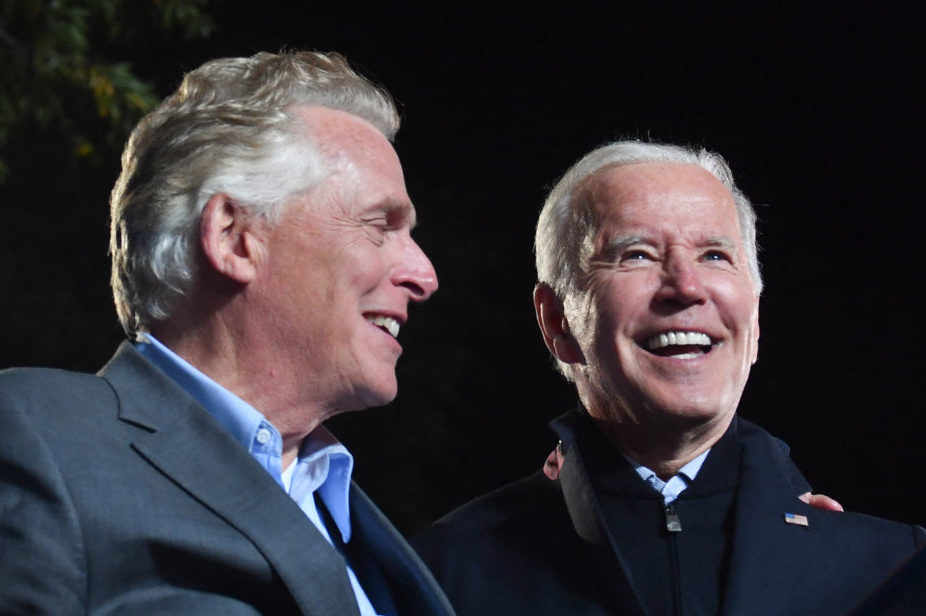Go nuclear, Joe
Across the Atlantic at COP26 (which, somehow, is still going on), politicians deliver a familiar, Malthusian script. It’s five minutes to midnight, it’s already too late, the stakes couldn’t be higher. You know the deal.
And yet, for all the warnings of imminent apocalypse and wrangling over emissions targets, policymakers consistently fail to act as if they actually take their own words seriously. In fact, all this overblown rhetoric obscures solutions that do not require the “great reset” favored by the Davos crowd or the political and economic revolution argued for by cringey, crusty Greta Thunberg fans demonstrating their displeasure through the medium of performance art on the streets of Glasgow.
Consider the case of Diablo Canyon, a nuclear power plant thousands of miles from the COP jamboree on the central California coast. At present, the plant provides 8 percent of in-state electricity and 15 percent of California’s carbon-free electricity. And yet it is set to be shuttered in 2025.
A recent report from Stanford University and MIT finds that a delay of the retirement of Diablo Canyon to 2035 would reduce the state’s power sector emissions by more than 10 percent, save $2.6 billion and improve energy reliability.
The original decision to shutter the plant, made with input from labor and environmental groups, was based on the assumption that California would have more than enough wind and solar energy by 2025. Since then, the state has experienced rolling blackouts thanks to insecure supply and a surge in demand during last summer’s heatwave.
In other words, the logic behind closing Diablo Canyon has collapsed. When New York closed Indian Point nuclear power plant earlier this year (a longstanding ambition of former governor Andrew Cuomo), the state waved goodbye to a clean source for a quarter of New York City’s energy. As critics of the closure predicted, that shortfall has been mostly made up by natural gas.
Back here in Washington, the Biden administration demonstrates stunning cognitive dissonance on energy. The administration is calling on OPEC to produce more oil whilst hammering fossil-fuel energy at home.
Our politics has barely scraped the surface of the tradeoffs involved in 21st-century energy policy, and nuclear power alone won’t solve that headache. But it can help. And where so many climate change-fighting options are unpopular and divisive, nuclear is the opposite. A recent poll found that majorities of both Democrats and Republicans support nuclear power.
The administration should follow the lead of its allies overseas. On Tuesday, French president Emmanuel Macron announced with Jupiterian zeal a plan to ramp up the country’s nuclear energy output. It’s a win-win-win that helps lower energy costs, fight Europe’s destabilizing dependence on Russian gas and cut emissions.
In Britain, the government is backing a Rolls-Royce-led consortium in the development of smaller mini-reactors in the hope that the UK can boost its nuclear energy output quickly and affordably.
America’s nuclear energy levels have stayed the same for three decades. Now they threaten to decline just as they need to be rising. The Biden administration touts its “whole of government” and “whole of economy” approach to climate change. If it is serious, then nuclear must be at the top of the agenda.
*** Sign up to receive the DC Diary in your inbox every weekday ***
The White House finally feels the inflationary pressure
As John Maynard Keynes didn’t say, when the facts change, I change my messaging. So it is with the signals from the White House on the economy.
Yesterday’s news of a 30-year high for inflation was the latest unwelcome development that has forced the administration the change its economic tune. Out are the insistences that inflation was transitory and the jibes about “the tragedy of the treadmill undelivered.” In are pledges to solve the supply-side bottlenecks and bring prices under control. None of which is especially reassuring.
The problem is that the policies don’t match the rhetoric. Biden’s agenda was formulated by a bunch of Obama administration veterans convinced that the great mistake of recent US history was the insufficient scale of the 2009 stimulus package, a conviction that has little bearing on America’s present economic predicament. We are told that a $1.5 trillion spending package spread over ten years will ease short-term supply problems and help fight long-term inflation. Is anyone persuaded?
A job for the Macker?
Punchbowl reports that the White House is trying to find an administration job for failed Virginia gubernatorial candidate Terry McAuliffe. You might find this surprising: why, exactly, would Joe Biden want to find a job for the man who just bombed spectacularly in a state the president carried by ten points last year? A reward for McAuliffe’s unswerving loyalty on the campaign trail, perhaps? Or just a case of Washington insiders looking after one another?
What you should be reading today
Kristin Davison: An inside account of how Glenn Youngkin won
John Phipps: In 1980s Bennington it was a badge of dishonor not to have slept with your professor
Ross Clark: Does Joe Biden understand inflation?
Ruy Teixeira, Liberal Patriot: Revisiting the Fox New fallacy
John Authers, Bloomberg: The inflation numbers are a sticky hot mess
Isaac Schorr, National Review: As Rittenhouse prosecutors struggles, the press wrestles with its prejudgements
Poll watch
President Biden Job Approval
Approve: 42.2 percent
Disapprove: 52.4 percent
Net approval: -10.2 (RCP Average)
Does Facebook make society better or worse?
Better: 76 percent
Worse: 11 percent (CNN/SSRS)

























